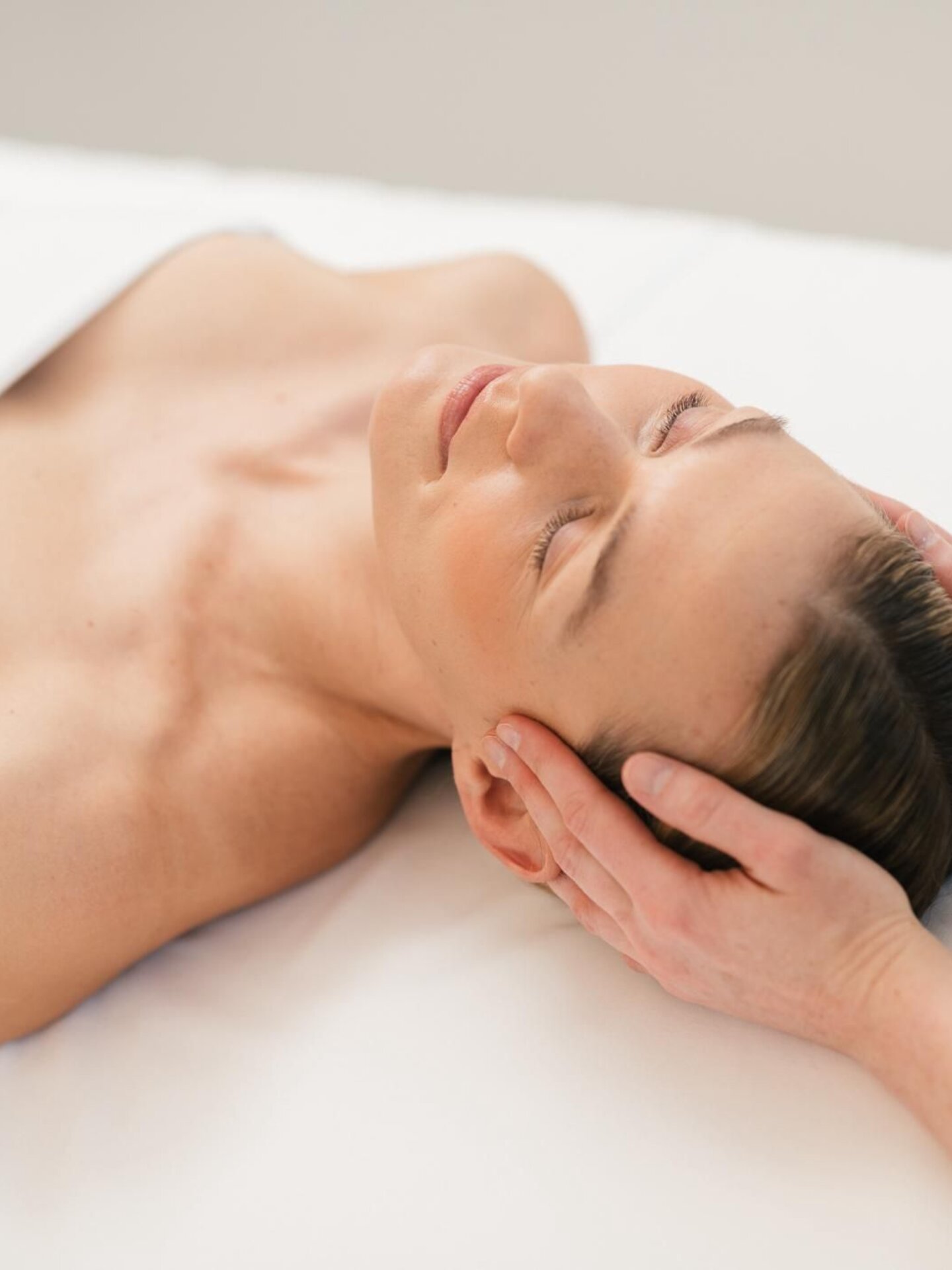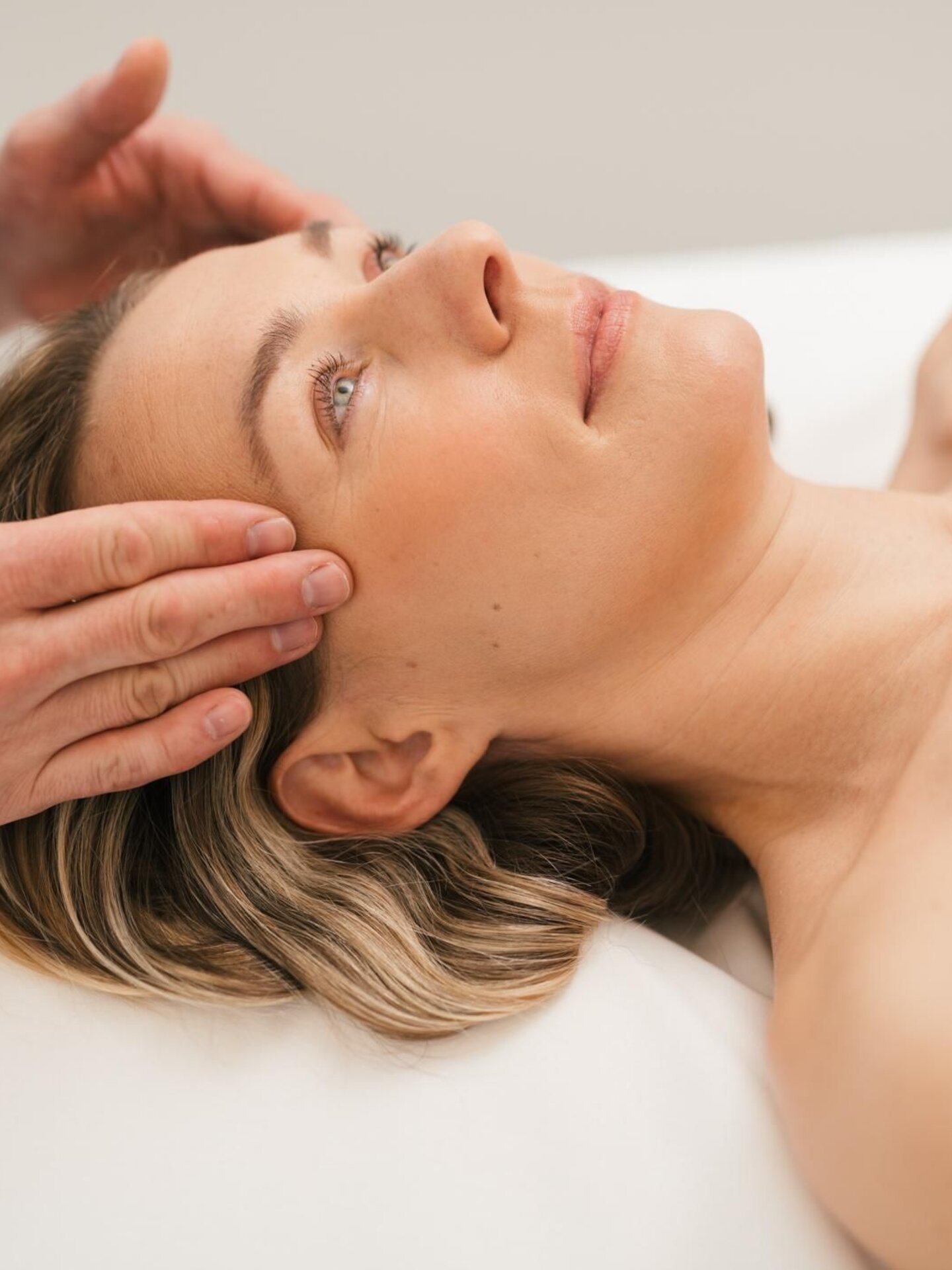Synergies of ENT & Mayr Medicine
The intensive collaboration with renowned specialists across all medical fields has contributed for years to the high quality that Parkhotel Igls offers its guests. ParkZeit interviewed consulting physician Prof Dr Patrick Zorowka from the University Clinic for Hearing, Voice, and Speech Disorders at the Medical University of Innsbruck, together with Chief Physician Dr Peter Gartner, to discuss therapeutic synergies between Modern Mayr Medicine and Ear, Nose, and Throat (ENT) medicine.
Auditory Problems
Hearing Loss
Immanuel Kant judged that the loss of sight separates us from things, while the loss of hearing separates us from people. Hearing loss in advanced age, for instance, ultimately leads to social isolation, as the auditory-verbal processing takes place in the brain. And this needs to be trained, as neural connections regress when they are not used. This auditory issue could be relatively easily addressed with hearing aids. Just as we use corrective lenses to provide clear vision to the eye, the deficient organ can be technically supplemented in this case as well. Perhaps hearing aids need to become as fashionable as glasses to shed their stigma of old age. However, hearing loss is just one of many issues that can be addressed with ENT expertise and Modern Mayr Medicine.
Pay attention to the warning signal
Snoring
A common issue for both ENT doctors and Mayr Medicine is sleep disorders. Particularly critical, according to Prof Dr Patrick Zorowka, is the so-called "dangerous snoring," which leads to short-term breathlessness: The body lies relaxed on its back, the tongue falls backward, and for several minutes, the lungs receive no air, and the brain, no oxygen. These individuals do not get sufficient rest during sleep, which significantly increases their stroke risk, and they often doze off during the day, sometimes even behind the wheel on the highway.
In many cases, according to Dr Peter Gartner, the dietary habits are to blame—eating too late, too much, too fatty, and excessive drinking. Too much indulgence is counterproductive, as is professional overstrain—Modern Mayr Medicine gently guides individuals back to a natural balance.
Dysphagia
Food going down the wrong pipe
Swallowing disorders are common in older adults. Swallowing is a very complex process, involving 50 muscle groups and many brain nerves. Age-related physiological changes make it more difficult because coordination no longer functions as smoothly. If the dentures are a bit loose, it’s easy to choke. If coughing follows, it can easily lead to pneumonia, a lung infection that often goes unnoticed. Here, adjustments in diet or food preparation can have a very positive effect: cooking meat softer, eating more tender vegetables, etc.
Professor Zorowka: "Swallowing disorders can be a sign of serious diseases that announce themselves in this way. This needs to be clarified, and we conduct the specialized examinations for this purpose."
When the stomach becomes leaky
Heartburn
Heartburn is a widely known symptom and an indication of a stomach disorder. However, much less well-known is the throat-larynx reflux, which is often undiagnosed because only the stomach is examined. The larynx is irritated from below by the refluxed acids because the muscle at the entrance to the stomach does not close properly.
Reflux Treatment
Coughing, congestion, and a lump in the throat upon waking are signs of this issue, which must be evaluated by an ENT specialist. The reflux itself can be very effectively treated with regular Mayr therapies.
Reflux can also lead to voice disorders. The voice is often overstrained, and work-related issues increase. The specialist must determine whether the cause is improper vocal technique, such as incorrect strain, or age-related weakness. Older adults have a less resilient voice because muscle mass in the larynx decreases. Speech therapy can also help, providing more depth to the voice or reducing strain.
Recommendations
Eating the right foods and chewing slowly – healthy nutrition instead of quick feeding strengthens the gut and, in turn, supports the development of the immune system. Problems with tonsils, bronchitis, colds, or recurring sinus infections have their roots in a weakened immune system. When the gut is restored, these infections decrease. Habitual corrections, dietary changes, and lifestyle adjustments are also the key to improvement in this case.
Tinnitus
A Widespread Disease
"Tinnitus represents a major burden and can already be considered a widespread condition. Two to four percent of the entire population are affected. However, nearly everyone has experienced ringing or buzzing in the ear at some point, which is often harmless," relativizes Professor Zorowka. He is the expert in this field and treats the guests of Parkhotel Igls as a consulting physician when "the ear rings": "It is a pleasure to work with motivated guests who want to do something for their health."
Tinnitus Treatment at Park Igls
We analyze with the most precise diagnostics to first determine the type of hearing damage or tinnitus. We also test the psychosomatic resilience of the patient, asking questions about their lifestyle. Tinnitus is almost always a sign of an imbalance in the organism, a kind of audible internal misalignment. Based on these insights, a tailored consultation and therapy are carried out. In many cases, individual treatment also includes relaxation therapies, such as those based on Jacobson’s technique, and possibly psychotherapeutic counseling.
The Problem of Tinnitus
Long Known
Significant historical figures suffered from "ringing in the ears," and Martin Luther, for instance, wondered whether he should attribute his hearing disorder to too much red wine or interpret it as a punishment from God. In connection with "hearing voices," it was also equated with madness, and to this day, those affected fear a more serious neurological condition when they hear ringing in the ear – actually, in the brain. However, today we know that in many cases, targeted treatment is possible. Tinnitus can occur in old age – or when exposed to loud noise. Sensitive individuals, who have difficulty shielding themselves, are at greater risk. The constant ringing or buzzing then causes sleep disturbances, further exhausting the body and creating even more stress.
Health
A Matter of Lifestyle
What can be done about it? Professor Zorowka sees only one promising way: "One must learn to live with it and cope. To say that there's nothing that can be done would be absolutely wrong. If you start seeing yourself as a candidate for dementia or stroke, threatened by a tumor, the situation will become even more serious. The good news: Two out of three tinnitus sufferers experience relief through treatment. They compensate, get used to the sounds, or no longer consciously hear the ringing." Medicine offers a wealth of therapeutic methods to support these processes. The range includes sophisticated filtering techniques and habituation therapy (retraining), similar to desensitization in the case of allergies. In any case, it ultimately comes down to conscious behavioral changes that lead to better management of the problem.
For Dr Peter Gartner, this results in a close connection to the treatment tradition of F. X. Mayr, where "talking medicine" is also applied: "Medicine is not just about medical interventions and the surgical removal of growths. Unlike the classical spa treatment, where one entrusts oneself to others, receiving massages and therapies, Mayr Medicine also requires activity from the patient, as it is essentially a self-administered healing process! The Mayr doctor becomes the guide, but the patient must walk the path to the summit, to health, on their own!"
The best solution is, of course, to invest in prevention, meaning to take care of one's health before becoming ill. Active people are much less likely to get sick because they take care of themselves, with Modern Mayr Medicine being the best way to stay healthy with professional support. A Mayr therapy can have a positive effect on conditions such as tinnitus or Meniere's disease (inner ear disorders that cause dizziness), but also on hyposmia and dysgeusia, i.e., smell and taste disorders, and ultimately on nearly all conditions in the ENT (ear, nose, and throat) field.
For more information and interesting insights into Modern Mayr Medicine and its positive effects on your health, please visit our section "Modern Mayr Medicine – News from Medicine & Research."























